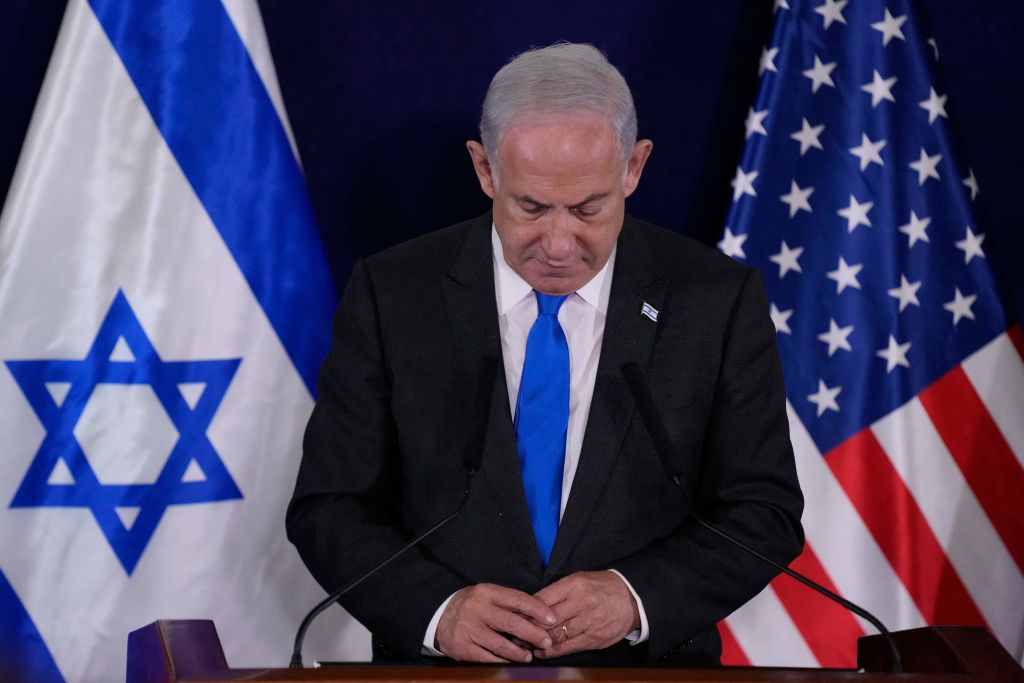Israelis were turning against the country’s prime minister Benjamin Netanyahu even before Hamas’s invasion. Over the past six months, tens of thousands of people have taken to the streets against Netanyahu’s government and its controversial judicial reforms. Israel has been hit by strikes and road blocks and ministers have been heckled in the streets. In an unprecedented move, resistance even reached the army: some reservists vowed to refuse to serve in the Israeli army if the reform passed.
Since the atrocity of last weekend, fury at the Israeli government has become even more widespread.
When the war broke out, it was clear that Israel was caught napping. This caused an immediate widespread outcry against the government. In the months prior to the attack, considerable military forces had been diverted to the West Bank, where violence was on the rise. In part, this was because ministers in Netanyahu’s own government had been stirring up tensions in the West Bank and East Jerusalem. As a result, the army was at reduced readiness around Gaza. The army outposts invaded by Hamas on Saturday suffered large numbers of casualties. It is clear that they were understaffed and unprepared. Back-up forces took hours to reach military bases and towns that were under attack.
Israel is full of sadness — but also rage
Some reports suggest that the army and Israel’s Security Agency, Shin Bet, suspected that an attack was about to happen. Egyptian sources also claim to have warned Netanyahu — who has denied the claims — that a major incident was imminent, but that their warning was ignored.
In August, it was also reported that the army told the PM there were serious gaps in its level of preparedness, and that Netanyahu failed to brief his cabinet about this.
Hamas alone is responsible for the bloodshed that unfolded in Israel. But Netanyahu’s long-term policy of strengthening Hamas in order to weaken the Palestinian Authority and make a peace agreement impossible has surely allowed this situation to occur. Bibi also allowed the transfer of considerable sums of money to Hamas from Qatar. He preferred a policy of containment and keeping a calm border with Gaza. Now we know that Hamas was taking advantage of the superficial calm in order to build up its capabilities and fighting skills.
Israel is full of sadness — but also rage. During visits to hospitals, minister of the economy and industry, Nir Barkat, and environmental protection minister, Idit Silman, have been heckled by relatives of those injured in the attacks — they were urged to resign and apologize. Grieving families have also criticized Netanyahu.
Last Saturday — October 7 — was the day that the Israeli public came together. It left all divisions behind. The country united to help and support, rescue, serve, volunteer and donate. Conscription rate of reservists is at 150 percent. The Israeli public has stepped up, but politicians lagged behind. With no sign of leadership from Bibi, and a government that was largely in shock, it took until Thursday to form an emergency unity government with Benny Gantz and Gadi Eisenkot, who both served as former chiefs of the general staff.
Since the start of the war, and as a result of existing low levels of confidence in the government, approval ratings for Bibi have tanked; only 29 percent of the public think that he is qualified to be PM, while 42 percent favor Gantz. Likud has lost nine seats since Saturday and Gantz’s party now has a twenty-two-seat-lead over Likud. This means that opposition parties have a seventy-eight-seat majority, while the coalition only has forty-two seats.
In Israel, the analogy of lions led by donkeys springs to mind. It is clear that the majority of the public believe that Netanyahu must go.
This article was originally published on The Spectator’s UK website.


















